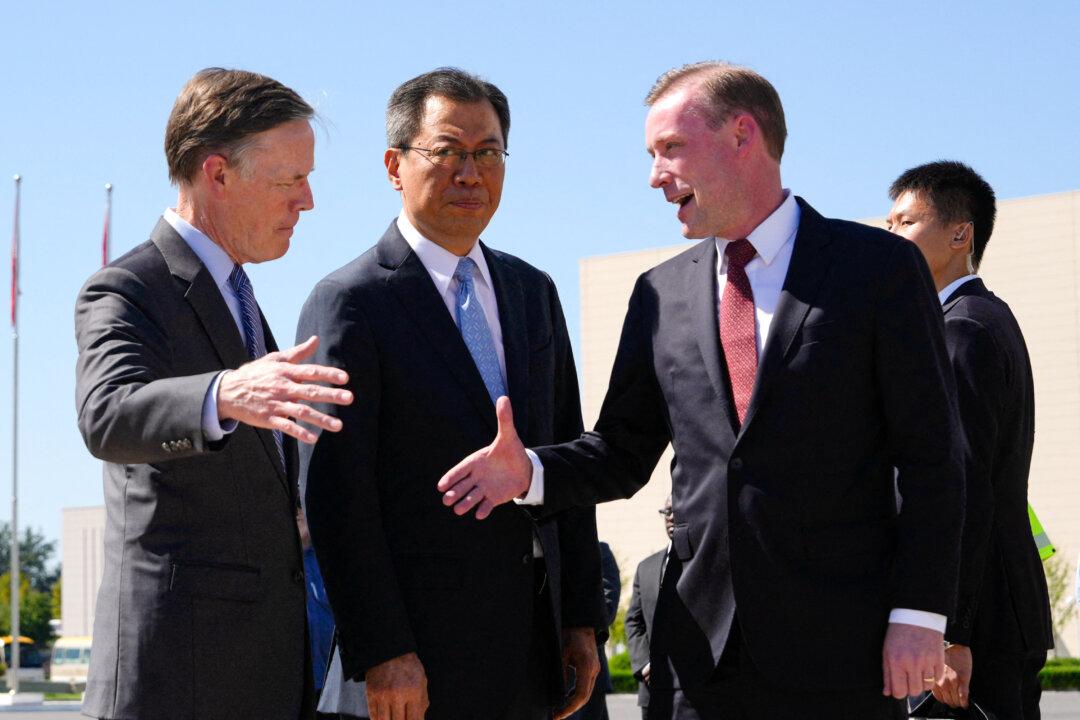The U.S.’s top security aide arrived in Beijing on Tuesday for a three-day visit during which the world’s two largest economies seek to engage diplomatically amid China’s recent aggression—and U.S. condemnation thereof—in the South China Sea.
White House national security adviser Jake Sullivan told reporters ahead of a closed-door meeting with Chinese Foreign Minister Wang Yi that they would discuss areas of agreement and disagreement that “need to be managed effectively and substantively.” Wang described China-U.S. ties as “critical,” with a bearing on the world, and which have taken “twists and turns.”



